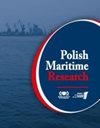利用人工神经网络预测船舶燃油消耗量
IF 2
3区 工程技术
Q2 ENGINEERING, MARINE
引用次数: 5
摘要
摘要在海运船舶运营中,燃料成本是影响海运行业整体盈利能力的主要运营成本。船舶燃料使用的有效提高将提高船舶运行效率。由于船舶燃料消耗取决于不同的因素,如天气、巡航条件、货物负载和发动机状况,因此很难评估各种类型船舶的燃料消耗模式。大多数传统的统计方法在预测船舶燃料消耗量时没有考虑这些因素。随着技术的发展,已经开发了不同的统计模型,用于根据船舶数据估计燃料消耗模式。人工神经网络(ANN)是建模和验证船舶燃料消耗的一些最有效的人工方法。神经网络在海运中的应用提高了为分析各种因素之间的相互关系而开发的回归模型的准确性。本文综述了利用人工神经网络预测船舶燃料消耗的工作,重点介绍了人工神经网络的结构、应用和预测算法。还提出了未来的研究方向,本综述可作为使用人工神经网络进行船舶燃料消耗数学建模的基准。本文章由计算机程序翻译,如有差异,请以英文原文为准。
Using Artificial Neural Networks for Predicting Ship Fuel Consumption
Abstract In marine vessel operations, fuel costs are major operating costs which affect the overall profitability of the maritime transport industry. The effective enhancement of using ship fuel will increase ship operation efficiency. Since ship fuel consumption depends on different factors, such as weather, cruising condition, cargo load, and engine condition, it is difficult to assess the fuel consumption pattern for various types of ships. Most traditional statistical methods do not consider these factors when predicting marine vessel fuel consumption. With technological development, different statistical models have been developed for estimating fuel consumption patterns based on ship data. Artificial Neural Networks (ANN) are some of the most effective artificial methods for modelling and validating marine vessel fuel consumption. The application of ANN in maritime transport improves the accuracy of the regression models developed for analysing interactive relationships between various factors. The present review sheds light on consolidating the works carried out in predicting ship fuel consumption using ANN, with an emphasis on topics such as ANN structure, application and prediction algorithms. Future research directions are also proposed and the present review can be a benchmark for mathematical modelling of ship fuel consumption using ANN.
求助全文
通过发布文献求助,成功后即可免费获取论文全文。
去求助
来源期刊

Polish Maritime Research
工程技术-工程:海洋
CiteScore
3.70
自引率
45.00%
发文量
20
审稿时长
>12 weeks
期刊介绍:
The scope of the journal covers selected issues related to all phases of product lifecycle and corresponding technologies for offshore floating and fixed structures and their components.
All researchers are invited to submit their original papers for peer review and publications related to methods of the design; production and manufacturing; maintenance and operational processes of such technical items as:
all types of vessels and their equipment,
fixed and floating offshore units and their components,
autonomous underwater vehicle (AUV) and remotely operated vehicle (ROV).
We welcome submissions from these fields in the following technical topics:
ship hydrodynamics: buoyancy and stability; ship resistance and propulsion, etc.,
structural integrity of ship and offshore unit structures: materials; welding; fatigue and fracture, etc.,
marine equipment: ship and offshore unit power plants: overboarding equipment; etc.
 求助内容:
求助内容: 应助结果提醒方式:
应助结果提醒方式:


